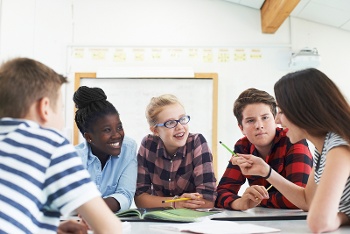Case Study
Heatherton Girls’ School, part of the historic Berkhamsted School Group (established 1541), is renowned for combining innovative, research-based teaching with a nurturing environment. In 2023, its leadership discovered Kide Science’s play-based, inquiry-driven lessons and recognized a strong alignment with their educational philosophy. This led to a groundbreaking research partnership between Heatherton, Kide Science, and the University of Helsinki, centered on exploring how playful, STEM-focused lessons impact early learners.
Play-Based Learning in Action
Teachers integrated Kide’s story-based lessons set in the whimsical world of Supraland, featuring a friendly robot, Hoseli. These stories inspired students’ curiosity and encouraged them to engage in authentic science exploration. Creative tools like the “Curiosity Cube” and even a toy phone for “calling Supraland” infused wonder into daily learning.
Cross-Curricular Integration
Educators seamlessly wove Kide themes into broader classroom activities—including math, literacy, and the arts—encouraging individual choice through free exploration zones and enhancing student ownership of their learning.
Assessment & Progress Monitoring
Teachers tracked growth in core science skills (like observation and classification) using structured diaries, observation grids, and digital platform tools. Student work was displayed in inspiring learning portfolios, sparking ongoing curiosity and reflection.
Increased Engagement & Skill Development
The program boosted students’ enthusiasm, motivation, collaborative problem-solving, and scientific thinking. All children—regardless of starting level—showed notable growth, with even the least advanced achieving steady progress. Block diagrams revealed gains not only in scientific processing but also in developing scientific language and identification as “little scientists.”
Teacher Growth & Confidence
Educators embraced a shift from delivering content to co-exploring with students. Teachers reported a newfound confidence and joy in STEM instruction, becoming more responsive to children’s questions and more open to student-led inquiry.

“ One of the joys of Kide Science is that there’s no right or wrong—the confidence we’re giving students is exactly what they need."
- Heatherton Teacher
While the primary goal was to measure gains in science processing skills, Kide lessons at Heatherton Girls’ School delivered far more. Teachers observed increased interest, motivation, and joy in learning, alongside stronger collaboration, problem-solving, and creative thinking. Skills like observation, classification, and science concept understanding were common, but what stood out was the frequent evidence of sustained interest and emotional engagement—key drivers for future science learning and success.
The image below shows how often different skills were observed in teachers' weekly journals.


“There’s no right or wrong… That confidence that we are giving them is what’s needed.” - Teacher
This collaboration underscores the power of combining Kide Science’s playful, inquiry-driven pedagogy with a school’s commitment to both innovation and care. It demonstrated measurable progress in early years science aligned with UK curriculum goals. Encouraged by the results, Heatherton has expanded use of Kide lessons into Years 1 and 2 and continues adapting the program to suit older students. Further analysis is underway, with academic publication of the full data pending.

Designed to make measurable impacts on student achievement, Accelerate Learning Inc. offers you a customized STEM solution for all your students. Learn how you can preview or demo our products for free.
Explore More Research & Case Studies